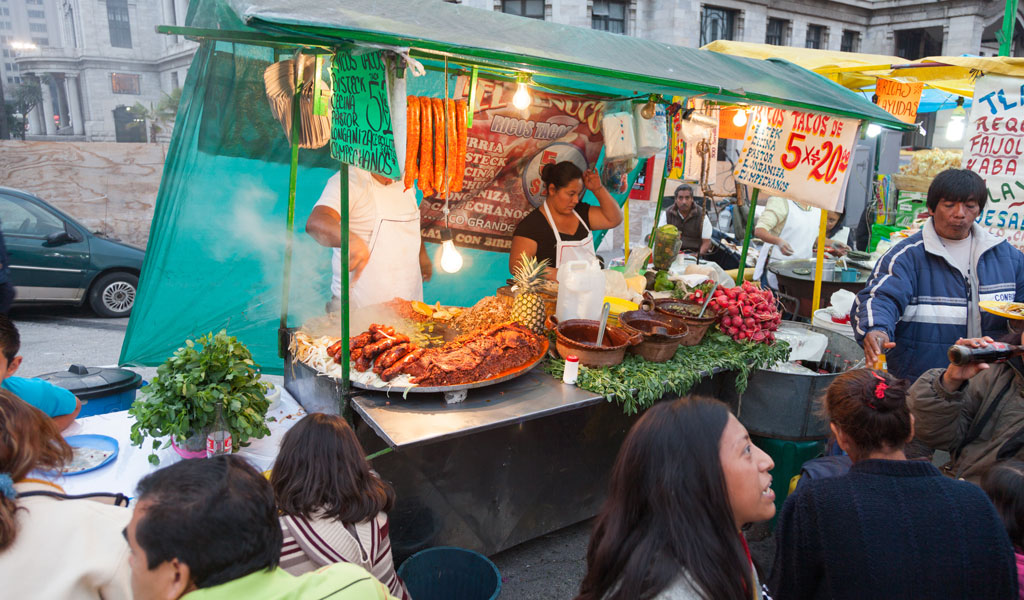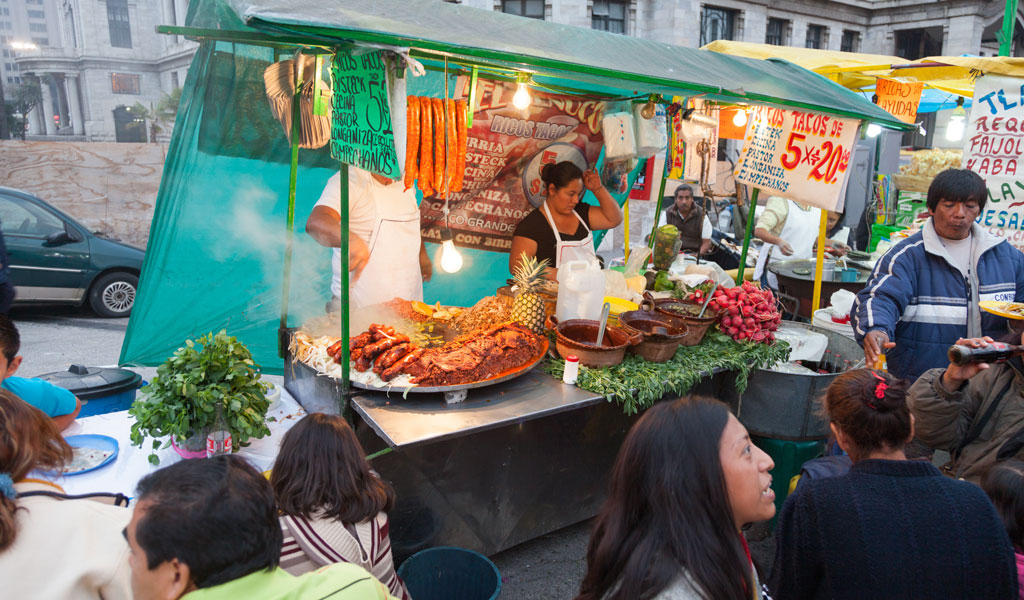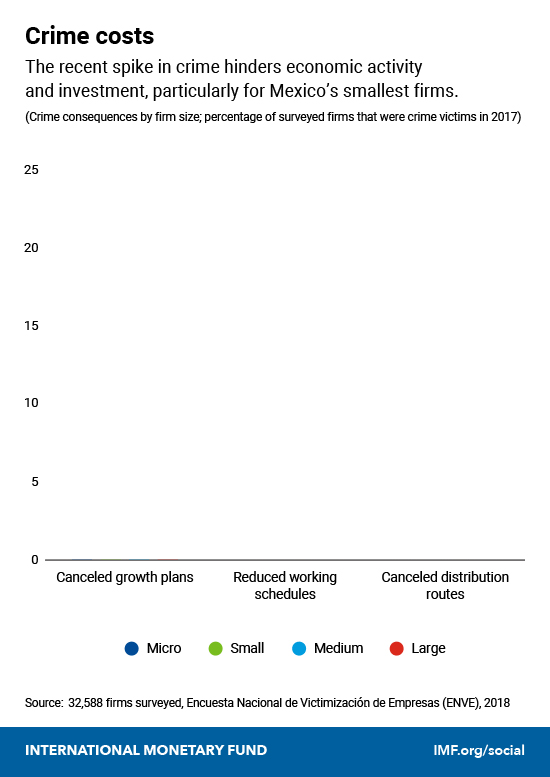December 18, 2018
[caption id="attachment_25289" align="alignnone" width="1024"] A woman sells street food at a market stall in Mexico City, Mexico: the country’s spike in crime is hurting small businesses’ profitability (photo: Jonah_Photos/iStock)[/caption]
A woman sells street food at a market stall in Mexico City, Mexico: the country’s spike in crime is hurting small businesses’ profitability (photo: Jonah_Photos/iStock)[/caption]
The human and economic costs of crime in Mexico have risen to historic highs. 2017 was Mexico’s most violent year on record with over 25,000 homicides—a 50 percent jump since 2015. Economists usually distinguish direct and indirect costs associated with crime.
In our chart of the week from Mexico’s latest economic assessment we show that indirect costs alone are likely to be sizable in Mexico. This is because surveys show that many of the country’s businesses felt like they had no choice but to cancel growth plans, distribution routes or to reduce working schedules amid the rising security concerns.
Crime hurts firm growth
As the chart shows, economic activity for the country’s micro enterprises—the more than 95 percent of Mexico’s businesses that employ only up to ten people, such as family-owned corner bakeries—is most vulnerable. About 13 percent of micro enterprises affected by crime canceled their business expansion while almost a fifth reduced working schedules.
Prevention and Damages add to the cost
Then there are the direct costs. For households and firms combined, the direct costs of crime, such as preventive measures and damages, rose to a staggering 2.5 percent of GDP in 2017.
According to the National Institute of Statistics and Geography, which tracks crime affecting households and firms, direct crime-related costs for households grew from 1.1 percent of GDP in 2016 to 1.65 percent in 2017. In the case of the country’s businesses, the institute reported that the total amounted to 0.9 percent of GDP.
Micro enterprises affected by crime canceled their business expansion.
Even the largest firms are not safe
While crime disproportionately constrains micro enterprises, it also affects the largest firms. Mexico’s state-owned oil and gas giant, Pemex, is an example that shows even big companies are not immune to criminal acts impairing operations.
The company reports that the number of illegal taps of its pipelines has risen by some 50 percent in 2017 compared to the year before, and about 15-fold since 2010. Pemex estimates that oil theft alone is costing the company $1.6 billion per year, which equals about 0.14 percent of GDP.
These findings emphasize the severe human and economic costs associated with crime. They continue to weigh on Mexico’s goal of higher living standards and lower levels of poverty and inequality.
The sheer magnitude of the economic costs add to the many other reasons why fighting crime needs to be a policy priority in Mexico. Developing policies to reduce crime and implementing them effectively is no simple task. Nevertheless, enhancing the efficiency and quality of law enforcement and judicial institutions would likely have to be a critical part of any policy package to successfully strengthen security in Mexico.






